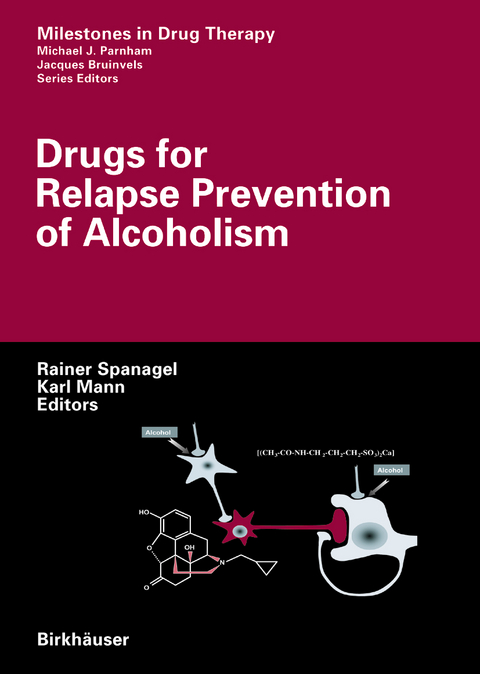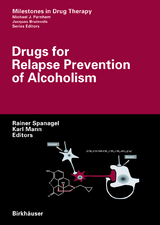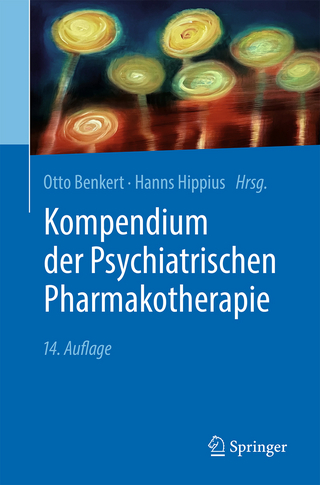Drugs for Relapse Prevention of Alcoholism
Springer Basel (Verlag)
978-3-7643-0214-6 (ISBN)
History of prevention of relapse.- How to measure relapse in animals.- How to measure relapse in humans.- Disulfiram (Antabuse®): the first medication to stop drinking.- Naltrexone: preclinical data.- Naltrexone: clinical data.- Acamprosate: preclinical data.- Acamprosate: clinical data.- Serotonergic compounds: preclinical data.- Serotonergic compounds: clinical data.- Opioidergic compounds: preclinical data.- Second generation opioidergic compounds: clinical data.- Dopaminergic compounds: preclinical data.- Dopaminergic compounds: clinical data.- Baclofen: preclinical data.- Baclofen: clinical data.- Cannabinoid receptor antagonists: a perspective.- Neuropeptide Y antagonists: a perspective.- Glutamatergic compounds: a perspective.- Future perspectives on relapse prevention.
"The book was a delight to read and the editors must be congratulated on bringing together a diverse group of experts to describe both the pre-clinical and clinical aspects of this topical issue. (...) This book will more than fulfil the requirements of a clinician looking for information about the underlying neurobiology of pharmacotherapy."
(Addiction)
| Erscheint lt. Verlag | 15.12.2004 |
|---|---|
| Reihe/Serie | Milestones in Drug Therapy |
| Zusatzinfo | XII, 244 p. |
| Verlagsort | Basel |
| Sprache | englisch |
| Maße | 170 x 244 mm |
| Gewicht | 715 g |
| Themenwelt | Medizin / Pharmazie ► Medizinische Fachgebiete ► Pharmakologie / Pharmakotherapie |
| Medizin / Pharmazie ► Medizinische Fachgebiete ► Psychiatrie / Psychotherapie | |
| Medizin / Pharmazie ► Pharmazie | |
| Naturwissenschaften ► Biologie ► Humanbiologie | |
| Schlagworte | alcoholism • Alkoholismus • Alkoholismus / Alkoholabhängigkeit • Cannabinoid • clinical application • clinical research • dopamine • Neuropharmacology • Neurotransmitter • Opioid • Peptide Systems • pharmacology • prevention • Psychopharmacology • Research • Treatment Strategies |
| ISBN-10 | 3-7643-0214-3 / 3764302143 |
| ISBN-13 | 978-3-7643-0214-6 / 9783764302146 |
| Zustand | Neuware |
| Informationen gemäß Produktsicherheitsverordnung (GPSR) | |
| Haben Sie eine Frage zum Produkt? |
aus dem Bereich




